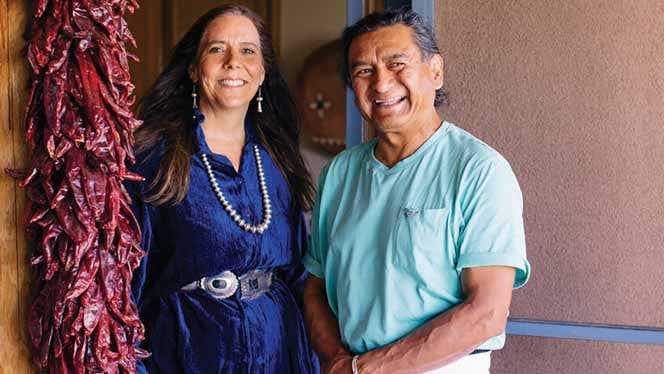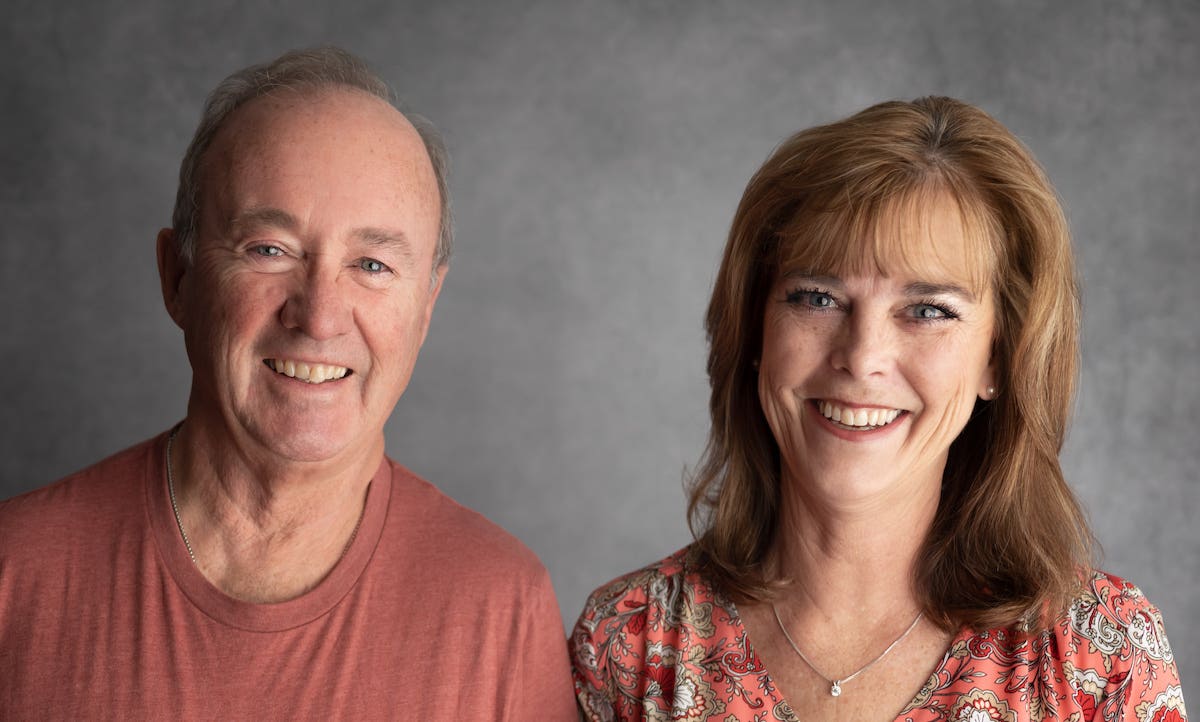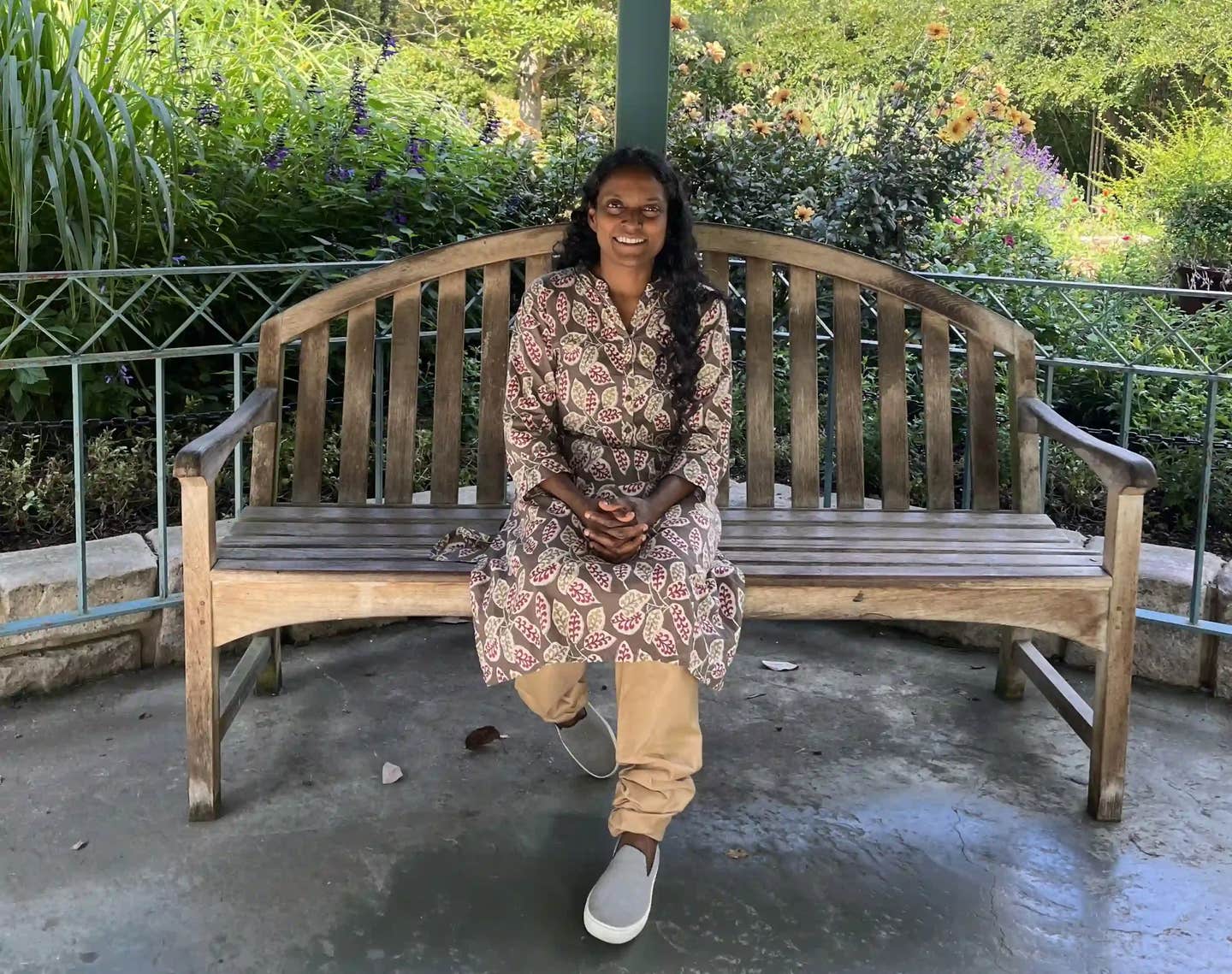
New Cookbook ‘Seed to Plate, Soil to Sky’ Highlights Plant-Based Traditions of Native Americans
Prior to European contact, Native American diets were largely plant-based—a legacy that chefs Lois Ellen Frank, PhD, and Walter Whitewater aim to highlight. Co-founders of the Santa Fe–based catering company Red Mesa Cuisine, the duo draw on the culinary traditions of their ancestors to create visually stunning plant-forward meals, using indigenous ingredients from Native suppliers. Now they’re sharing their recipes with readers around the world in a new cookbook, Seed to Plate, Soil to Sky: Modern Plant-Based Recipes Using Ancestral Native American Ingredients. The cookbook features more than 100 recipes that use foundational Native American ingredients to make accessible meals that are deeply tied to a rich ancestral lineage, along with personal stories and cultural insights from Frank and Whitewater. FOK spoke with Frank and Whitewater about the evolution of indigenous cooking and their efforts to nourish bodies and keep cultural knowledge alive through food.
How have the diets of Native Americans evolved over time?
Lois Ellen Frank: The “Three Sisters”— corn, beans, and squash, grown together in a supportive and sustainable relationship—provide the basic foodstuffs for Native American cuisine. Prior to European contact, Native populations ate a mostly plant-based diet, with 90% of their calories coming from plants. Animals were consumed only on special occasions, completely utilized with respect, and shared socially. It was only after the initial contact that Native Americans started raising livestock and consuming dairy products. In the later periods, when the tribes relocated onto Indian reservations, the government-issued foods included much more processed foods.
What sparked your interest in learning more about traditional Native foods?
LEF: I grew up on a farm on Long Island selling produce from a roadside stand. The zucchini did not sell well, but I found that if I baked it into zucchini loaves, it was hugely popular. That gave me an interest in the culinary arts and the business acumen to understand what people wanted to buy. I was dissatisfied with my successful culinary career and wanted to help people and connect with my Native roots. That is why I returned to Santa Fe, to study the history of Native foods.
Walter Whitewater: In 1992 I started to cook professionally, because I loved everything about food—how it looked, the textures, the colors, and how it tasted. Of course, I ate everything and whatever I wanted. Eventually this caught up with me, and I got sick. I saw people on the reservation with big scars on their bodies from operations. The doctors told me that I would need an operation too. When I looked at the pictures of my ancestors, I saw slim people. They were all healthy and vital. I decided that food would be my medicine, so I changed and ate only traditional foods.
How have you both been able to share your knowledge?
LEF: Unfortunately, chronic diseases and especially diabetes are endemic on Native American reservations. Collaborating with Chef Walter and partnering with Dr. Neal Barnard’s Physicians Committee for Responsible Medicine, we have been able to create an educational program targeting Native American populations. The Power Plate (pcrm.org/nativepowerplate) combines fruits, grains, vegetables, and legumes into a plant-based diet that is low in fat and high in nutrients, to help heal diabetes and other ailments. With support from Navajo Nation Special Diabetes Project and Indian Pueblo Cultural Center, we have been able to give seminars and cooking classes and create videos and recipes that emphasize the traditional foods of Native Americans. We are in a time when our young generation wants to learn our traditional ways ... and especially the foods that sustained our ancestors.
WW: Some people accept what you offer, and some do not. If I can put healthy, traditional plant-based food in front of someone—and it looks good, and it tastes good, and then they like it—little by little, I can help them live a better life. With songs, stories, and traditional food, we can make them well again, using food as medicine.
Curious about cooking with indigenous ingredients? Check out the Pinto Bean Spread recipe from Seed to Plate, Soil to Sky to begin your journey. This creamy, smoky spread is perfect as a dip for tortilla chips, as a spread on sandwiches, or as a pairing with fresh-cut veggies.
About the Author

About the Author
Chris and Sharon Dunmall
Join our mailing list
Get free recipes and the latest info on living a happy, healthy plant-based lifestyle.
By providing your email address, you consent to receive newsletter emails from Forks Over Knives. We value your privacy and will keep your email address safe. You may unsubscribe from our emails at any time.
